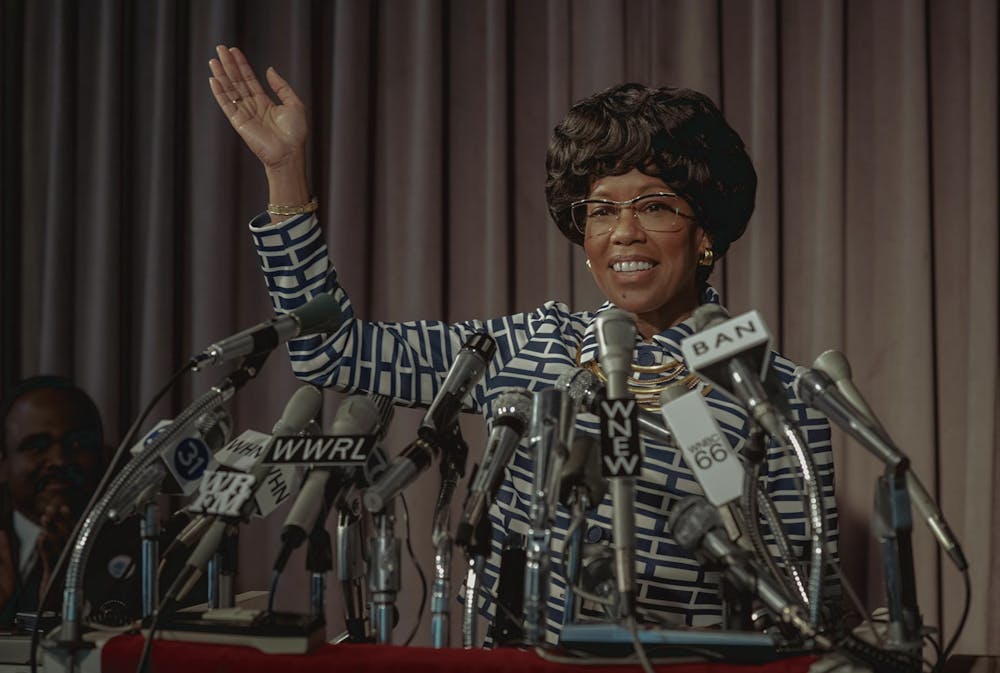In March 2024, director John Ridley released “Shirley,” a biopic about Shirley Chisholm, the first Black congresswoman and the first Black woman to run for president. It was one of 2024’s quieter releases; it was exclusively in theaters for only a week before it was released on Netflix to lukewarm reviews.
This was a bit of a shame. “Shirley” tells an important story that needs to be heard, now perhaps more than ever.
The film follows Shirley from her first day in Congress to the end of her failed run for president in 1972. The entire film is an uphill battle — she struggles with finances, finding endorsements and delegates, and the racism and sexism of the 1970s. In the end, she doesn’t make it past the primaries, losing the Democratic nomination to white male George McGovern, who then lost to Richard Nixon by a landslide.
After their loss, Shirley says to a young Barbara Lee, who later became a United States representative for California: “If I can’t get there today, then you have to believe you can get there tomorrow.”
It’s a beautiful, important story with a tearful, unsatisfying and deeply familiar ending.
As a woman, Shirley is wonderful. But as a film, “Shirley” falls somewhat flat.
It struggles with pacing and tension. It is in some ways limited by its genre — a nonfiction plot can only follow what really happened. But the film took a long time to get interesting and felt as though it lacked causality. What happened in the first scene barely seemed to impact what happened in the following scenes.
One of the most tense and interesting plotlines, the lawsuit Shirley and her team bring against the big three news stations for failing to include her in the debate, occurs around the middle of the second act and is resolved almost entirely offscreen. There are two assassination attempts, one against Shirley and one against her opponents, yet neither feel scary or like they had real impact or stakes.
The attempt on Shirley’s life does not change the narrative or her behavior. It’s odd for a depiction of real political violence to feel like a waste of screentime.
Part of the issue with tension comes from the film’s sound design, or lack thereof. I compare it to films such as “On the Basis of Sex” or even “Oppenheimer,” both of which help the audience get invested via intense musical scores and background sound effects. Had there been a little bit more love given to audio, the movie would have been a hit.
That’s because there is a lot to love about the film. It looks great, with a dreamy, almost-pastel color pallet that invokes an immediate sense of nostalgia. The costume design is also excellent; it is a loving homage to ‘70s fashion without looking like a Spirit Halloween costume.
Regina King gave a sincere performance as Shirley, as did Lucas Hedges in his supporting role as Robert Gottlieb — Shirley’s youth coordinator and one-man legal team.
Get content from The Daily Lobo delivered to your inbox
“Shirley” is one of 2024’s most overlooked films. Though it is a bit of a difficult watch, its message rings true.
Addison Fulton is the culture editor for the Daily Lobo. She can be reached at culture@dailylobo.com or on X @dailylobo






